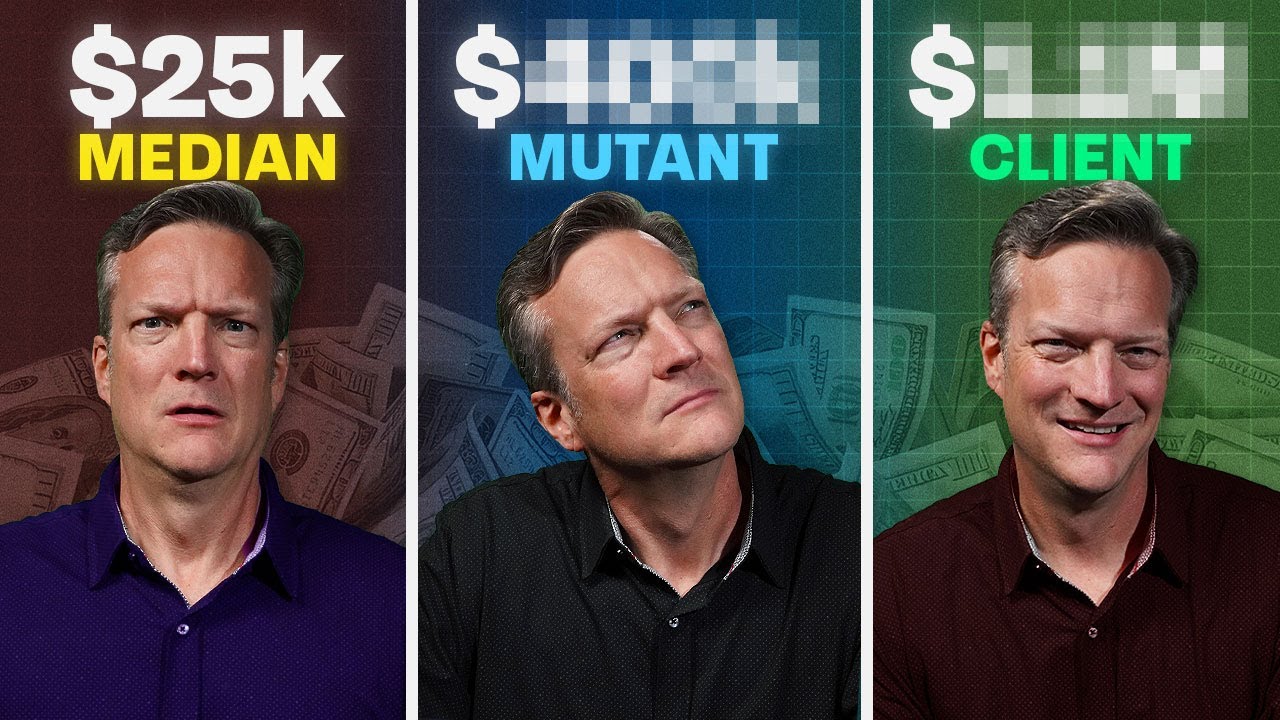But now, I want to talk about how they did it because we had a common misconception, Brian. Both of us, growing up, were taught by our families that wealthy people are just born into it. It's a class thing, like if you have money, it must be because your parents had money and passed it down. But then we read "The Millionaire Next Door" and started seeing the studies, and it sounded like maybe that's not the case. Maybe that's not actually where wealth is generated.
Yeah, I grew up with that being told to me, that those rich folks have all the breaks and advantages. That whole "if I can't do it, they must have some advantage." But when you see the research and you see consistently, it's around 80 percent, 80 percent of millionaires are first generation. And when we looked at our own research, 74 of our clients have not received an inheritance greater than $10,000. Now, look, I even think if we push this because I was telling Daniel, you know, my father passed away when I was in my mid-20s, I don't come from money. But my dad did have like a $100,000 life insurance policy, and my mom gave me some money, gave my brother some. She couldn't afford it. I mean, she really wasn't a good decision, but it was just one of those moments of grief. So, I would have to check here that I received over $10,000, but it was not what created my success. So, I think that this number is actually probably even higher, probably closer to that 80 percent you see from all the other sources. But it was very much confirmation that a lot of our clients are first-generation success. But this also, look, let me give you a cautionary tale. This means that wealth is very cyclical, meaning that by the time the kids inherit it and then the grandkids, it is gone.
So let's make sure not only do you use this to motivate yourself that it can happen for you, but also make sure you teach your children well. I love it. And so then we asked this question, now we've talked about, we've done a number of shows on our paths to wealth, you know, are you an entrepreneur or are you a virtuoso, someone who's super talented, or are you a corporate executive? How did you get there? What was your path? And so, we asked this question of our population. Sixty-nine percent of our respondents said, "Hey, the way that I got to millionaire status is not just to save and invest. I wasn't a super high-paid senior executive. I didn't go start some business, or I wasn't born with some talent where I can do a sport better than someone else or sing better than someone else. I was just consistent through time. I saved and I invested, and I saved and I invested. I did that over a long time period, and it worked out pretty well for me." Oh man, I mean this is music to my heart when I see that the saver-investor is still the dominant. Because there's so much noise out there telling you, you can't create success. Use this data to show you, "Yes, you can." I mean, if you just take a little bit of today and put it and defer it for that tomorrow, that great big beautiful tomorrow, you're going to have success that just will create tremendous opportunity. Now, we would have been silly if we asked our millionaires all these questions about what you do and how did you do it and all this kind of stuff and we didn't ask some of the questions. Hey, what would you do differently if you could go back or if you could tell your younger self something? What's the thing that you would tell them that would help them on their journey? What's the thing that young people need to know to be able to move towards this? I want to see if there's a theme here, so I had Daniel just type in a few of these. These are direct quotes, so just go ahead and let's read a few of these.













